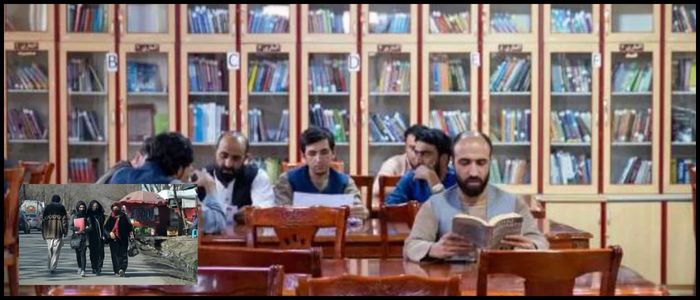Prohibition of Authors Who Are Women and Subjects Weighing on Women
According to the new edict, nearly 140 books written by women were outlawed, including educational titles such as Safety in the Chemical Laboratory.
Out of the 680 books, they were taken off the shelves simply deemed "problematic" and or that allegedly contravened Sharia and Taliban guiding principles. Within 18 subjects, there were restrictions against courses entitled Gender and Development, The Role of Women in Communication, and applied Women's Sociology.
In confirmation of the ban, members of the Taliban review committee overseeing the books indicated that "all books written by women are not allowed to be taught!" In an aside, former deputy justice minister Zakia Adeli, whose own name appeared on the status of banned academic literature, stated,
"It is a foregone conclusion [what happened]. It was not unexpected to believe the Taliban would seize the opportunity to impose change to the curriculum, considering what the Taliban had done over the past four years."
Prohibition — a Broader Elimination of Access and Right to Learn
The removals are similar to bans on fibre-optic internet in at least ten provinces ordered in late 2024 by the Taliban supreme leader to remove "immorality" from the state. Women and girls suffered the most. Women and girls cannot attend school beyond the sixth grade. Additionally, midwifery programs have been eliminated since late 2024.
Ziaur Rahman Aryubi, a senior Taliban official of education, said the removal was done in consultation with what he described as "religious scholars and experts." After women’s books, Iranian authors and any publishers were also singled out. 310 (of 679) of banned authors’ books were either written or published in Iran, and authorities ultimately established the impetus to block Iranian influence in universities in Afghanistan.
Vacuum — the Impromptu Implications of Findings
The professors warned of the catastrophic gap in educational opportunity. "Books by Iranian authors and translators are the only real connection to Afghan university degree-degreed students and the world of academia. Removing this input shrinks the opportunity to grow higher education opportunities to nearly non-existent," one professor noted, adding in commentary and reflection.
Staff hired at universities such as Kabul face the burden of publishing their own materials while complying with the limits established by the Taliban.
In a commentary by a professor, they noted that if these books represent that potentially it may never meet intent, and that it will ultimately be a loss with long-term impact to higher education in Afghanistan and its efficacy as previously existing prior to the charge from the Taliban to limit opportunities to even have an education system that can be defined as such.
World

Taliban Bans Books by Women in Afghan Universities

The Taliban regime has eliminated books written by women from the university curriculum in Afghanistan, which is a comprehensive prohibition, with the addition of banning the teaching of human rights and sexual harassment, as well as a number of subjects related to women. This represents the next series of restrictions or prohibitions that occurred following the group taking power four years ago.















